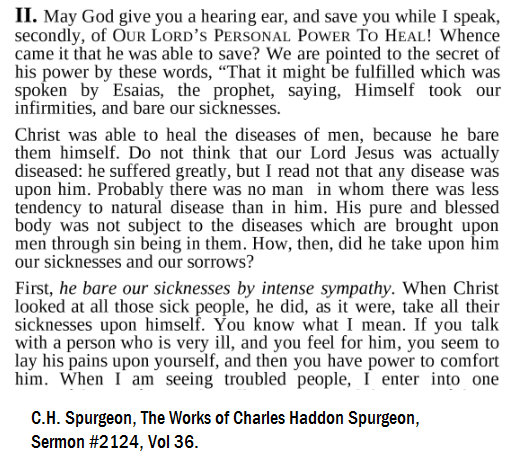 As they say in journalism, the Nashville Statement has legs. Mark Galli has a critical editorial about the NS in November’s Christianity Today. The President of NS sponsor Council on Biblical Manhood and Womanhood Denny Burk answered that a couple of days ago. Downstream, I am now responding to Burk.
As they say in journalism, the Nashville Statement has legs. Mark Galli has a critical editorial about the NS in November’s Christianity Today. The President of NS sponsor Council on Biblical Manhood and Womanhood Denny Burk answered that a couple of days ago. Downstream, I am now responding to Burk.
Because it is behind a paywall, I can’t read all of Galli’s op-ed. However, my main focus is what Burk has to say in reply. In particular, I want to briefly discuss God’s design and sexual orientation and gender identity.
God’s Design
Article 7 of the NS says:
We deny that adopting a homosexual or transgender self-conception is consistent with God’s holy purposes in creation and redemption.
In his CT op-ed, Mark Galli criticized Article 7 of the NS for this position which stigmatize some Christians who consider themselves gay even though they refrain from gay sex.* Burk isn’t having it:
In response to this, I would simply point out that Galli’s criticism is not that Article 7 of the Nashville Statement is false or unsupported in scripture. His argument is simply that those who embrace a gay identity might disagree with it. He may be right that some who embrace a gay identity will not wish to support the statement, but that fact should not be confused with a substantive critique of Article 7 on the merits. Nor should it obscure the fact that Christians who experience same-sex attraction can and do endorse the statement (e.g., Sam Allberry, Rosaria Butterfield, Christopher Yuan).
Burk says Galli doesn’t use the Bible to criticize the NS, then Burk resorts to a defense which relies less on the Bible and more on natural law. As I will demonstrate below, Galli and Burk both look to nature but see different things. Burk continues:
Notice that Article 7 focuses on God’s purpose in his creation design and in his redemptive work through Christ. The careful reader will recognize that this article is concerned with the revelation of God’s design in both nature and scripture. In what sense does Galli think it consistent with God’s design to embrace a transgender self-concept? In what sense is it consistent with God’s design to embrace a gay self-concept? Does Galli think that adopting such self-concepts are a part of God’s original design in creation? Does Galli believe that people will embrace a gay or transgender self-concept in the new heavens and the new earth?
Galli offers us no guidance on these questions, but they are precisely the kinds of questions that ordinary Christians are asking and that Article 7 of the Nashville Statement answers. And I believe the statement does so in a way that is consistent with both natural law and scriptural revelation.
Burk looks at nature, sees the typical arrangement, calls it God’s design and asks Galli questions. He wants Galli to answer that embracing a transgender or gay self-concept isn’t consistent with God’s design. Burk wants him to say that such self-conceptions were not part of the original plan nor will they be part of the eventual eternal state. Therefore, we shouldn’t affirm them now.
Let me now speak for Galli and ask some questions of my own. Mr. Burk, what about the exceptions? Do they not exist? Are they not valuable? In what sense do you think it is consistent with God’s design to pretend that LGBT people don’t exist now? Do you think straight and cisgender people become undesigned if we acknowledge that non-straight and transgender people exist? If those people who exist in exception honestly acknowledge it, will anyone be excluded from the new heavens and the new earth? Can’t the typical and the atypical coexist in your world? They do in mine.
Galli points to one part of nature and says the NS doesn’t fully capture it. Burk comes along, points to a more orderly part of nature and says everybody is supposed to be straight and cisgender even if they aren’t.
Exceptions Happen
In fact, there are many exceptions to “design” in nature. Among humans, some people have extra bones or teeth, some have webbed toes, some are missing limbs. Some couples are unable to have children. Among sheep, some rams attempt to mate with other rams. This does not alter the behavior of the straight rams. Arguing against LGBT people from God’s design is a weak argument because LGBT people also exist in God’s world. I don’t believe they are a surprise or have thwarted His plans. The basic means of furthering the species is intact even if a small percentage of people aren’t going to find love and attachment in the usual way.
Oppose same-sex sexual behavior if that is your conviction, but don’t tell LGBT people that their very existence is an attack on God’s created order and then tell them in the next breath that your statement to that effect is “an expression of love” for them.
Read my other posts about the Nashville Statement here.
*The issues are similar for transgender persons but for simplicity, I will focus on sexual orientation.
 Readers continue to be interested in Mars Hill Church and various players surrounding the demise of that church.
Readers continue to be interested in Mars Hill Church and various players surrounding the demise of that church.

